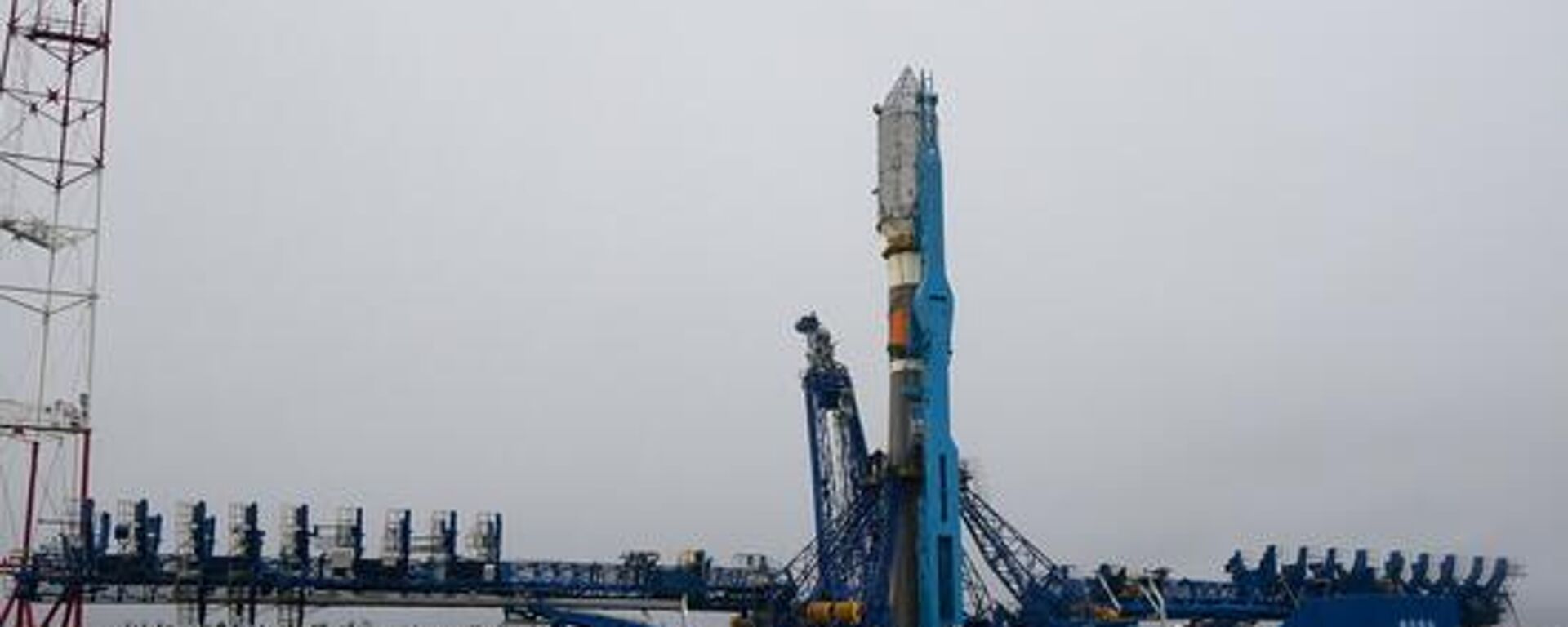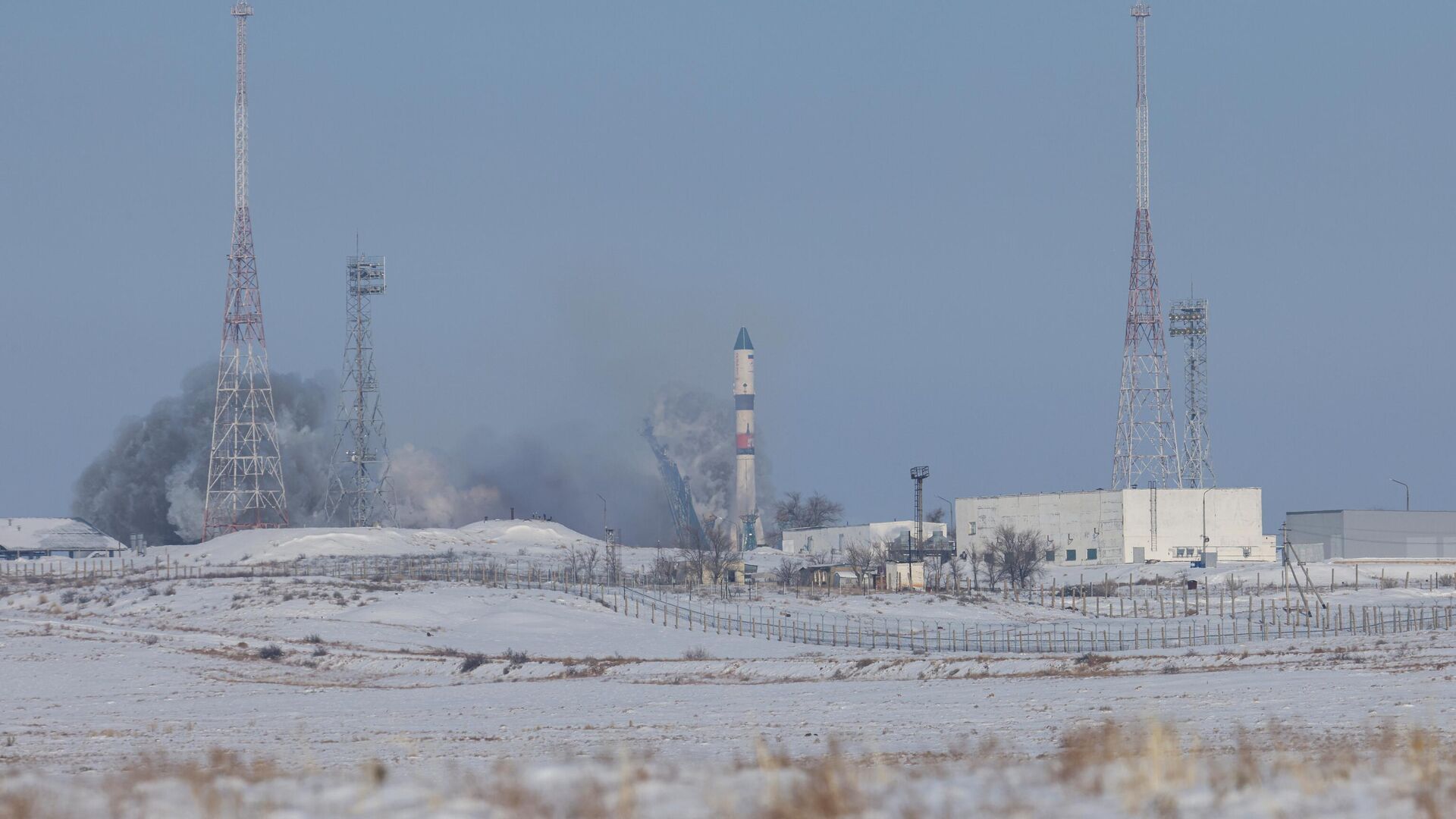https://sputnikglobe.com/20231115/russias-second-arktika-m-satellite-to-be-launched-on-december-16---source-1114966765.html
Russia's Second Arktika-M Satellite to Be Launched on December 16 - Source
Russia's Second Arktika-M Satellite to Be Launched on December 16 - Source
Sputnik International
The second Arktika-M satellite, necessary for monitoring the Northern Sea Route among other goals, will be launched into orbit from the Baikonur spaceport on December 16, a source in the rocket and space industry has told Sputnik.
2023-11-15T04:57+0000
2023-11-15T04:57+0000
2023-11-15T04:57+0000
russia
arctic
russia
baikonur
roscosmos
soyuz-2.1b
arktika
science & tech
https://cdn1.img.sputnikglobe.com/img/07e7/02/12/1107577768_0:161:3071:1888_1920x0_80_0_0_0d136555c9c9b44e5f5cfcdca2e7154d.jpg
"According to the preliminary plan, the launch of the Soyuz-2.1b rocket with the Fregat upper stage and the Arktika-M satellite №2 is scheduled for 12.17 p.m. Moscow time [09:17 GMT] on December 16, 2023," the source said. Russian state space corporation Roscosmos earlier said that the satellite was delivered by rail from a facility of NPO Lavochkin, also known as the Lavochkin Research and Production Association, in the town of Khimki in the Moscow region to Baikonur on November 14, and its launch was scheduled for December. The Arktika-M satellites operate in a highly elliptical orbit, which allows them to explore the Arctic region. The two spacecraft would provide round-the-clock monitoring of the Earth's surface and clouds, as well as seas in the Arctic region. In the future, it is planned to have four Arktika-M in orbit. Alexander Sergeev, the former president of the Russian Academy of Sciences, has earlier said that this would make it possible to monitor the Arctic region every 15 minutes and receive up to two million images per year. It is planned that two more satellites will be added to the constellation by 2031.
https://sputnikglobe.com/20231027/russia-launches-soyuz-21b-space-rocket-with-satellites-for-defense-ministry-1114521352.html
arctic
russia
baikonur
Sputnik International
feedback@sputniknews.com
+74956456601
MIA „Rossiya Segodnya“
2023
Sputnik International
feedback@sputniknews.com
+74956456601
MIA „Rossiya Segodnya“
News
en_EN
Sputnik International
feedback@sputniknews.com
+74956456601
MIA „Rossiya Segodnya“
Sputnik International
feedback@sputniknews.com
+74956456601
MIA „Rossiya Segodnya“
arktika-m satellite, baikonur spaceport, northern sea route
arktika-m satellite, baikonur spaceport, northern sea route
Russia's Second Arktika-M Satellite to Be Launched on December 16 - Source
MOSCOW (Sputnik) - The second Arktika-M satellite, necessary for monitoring the Northern Sea Route among other goals, will be launched into orbit from the Baikonur spaceport on December 16, a source in the rocket and space industry has told Sputnik.
"According to the preliminary plan, the launch of the Soyuz-2.1b rocket with the Fregat upper stage and the Arktika-M satellite №2 is scheduled for 12.17 p.m. Moscow time [09:17 GMT] on December 16, 2023," the source said.
Russian state space corporation Roscosmos earlier said that the satellite was delivered by rail from a facility of NPO Lavochkin, also known as the Lavochkin Research and Production Association, in the town of Khimki in the Moscow region to Baikonur on November 14, and its launch was scheduled for December.
The Arktika-M satellites operate in a highly elliptical orbit, which allows them to explore the Arctic region. The two spacecraft would provide round-the-clock monitoring of the Earth's surface and clouds, as well as seas in the Arctic region.

27 October 2023, 07:52 GMT
In the future, it is planned to have four
Arktika-M in orbit. Alexander Sergeev, the former president of the Russian Academy of Sciences, has earlier said that this would make it possible to monitor the Arctic region every 15 minutes and receive up to two million images per year. It is planned that two more satellites will be added to the constellation by 2031.



